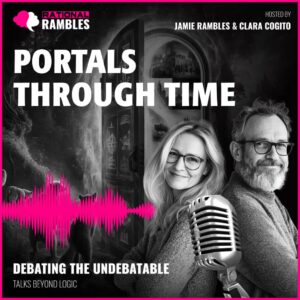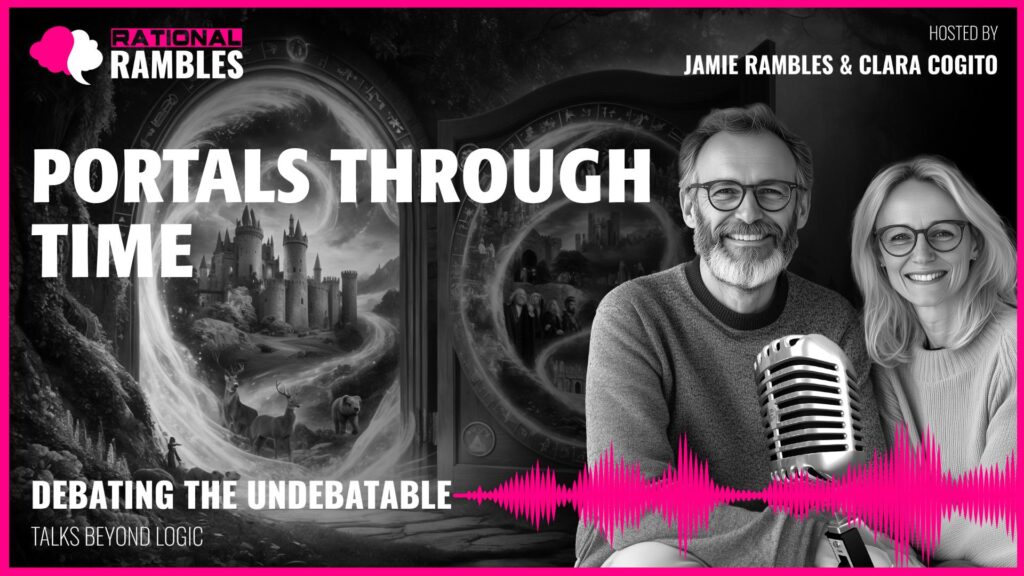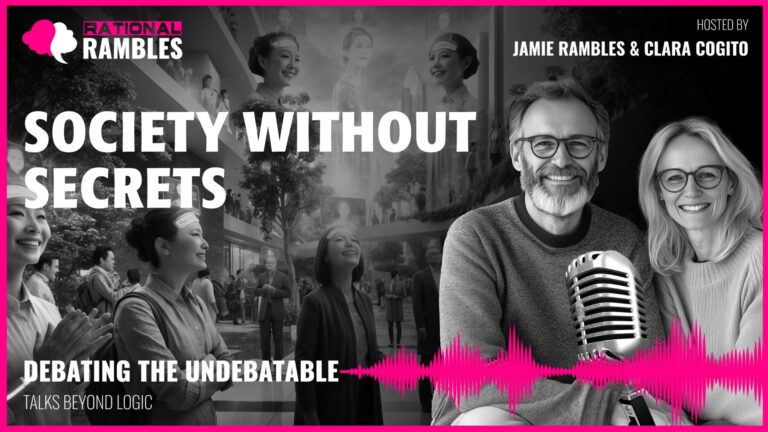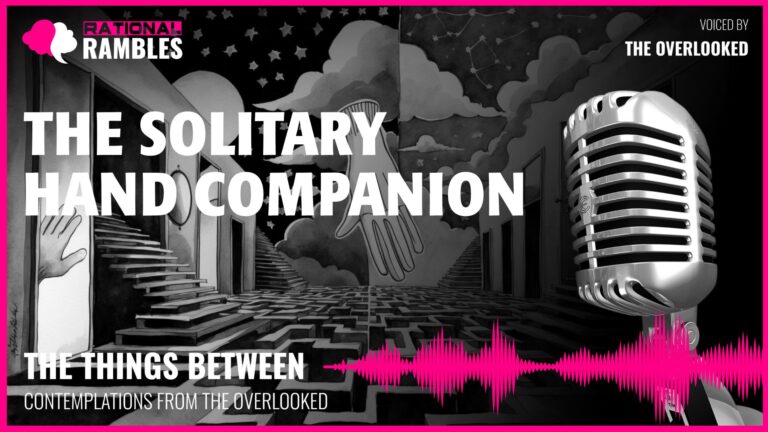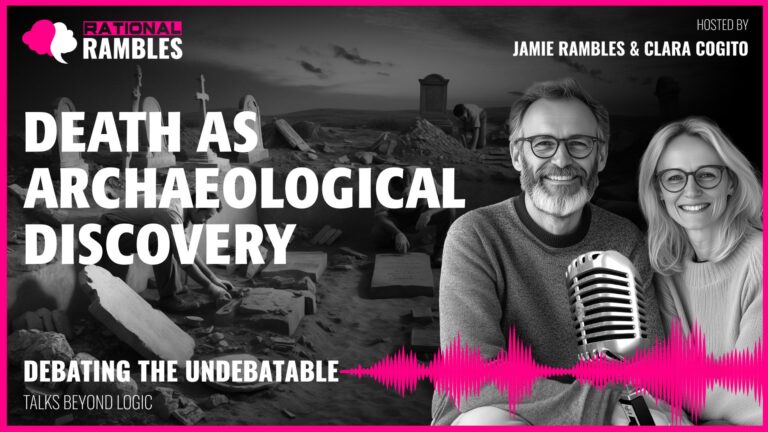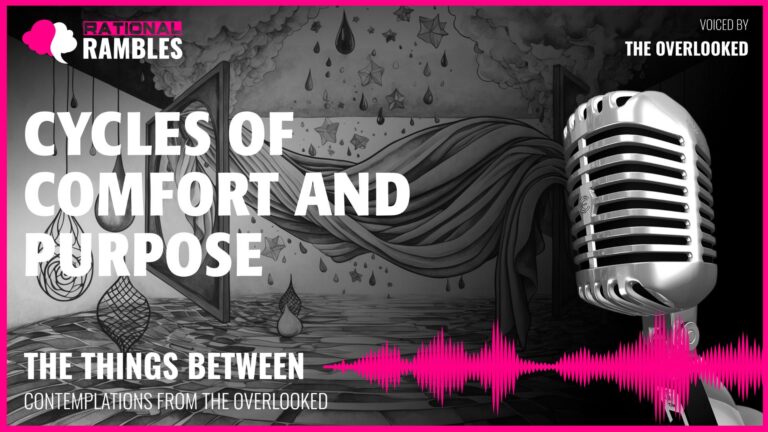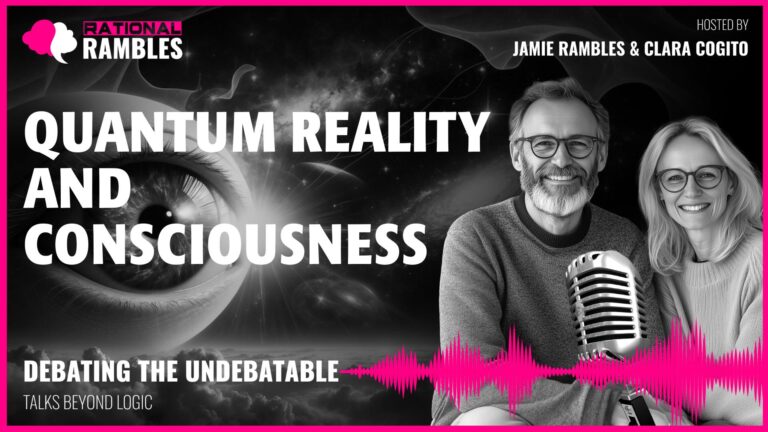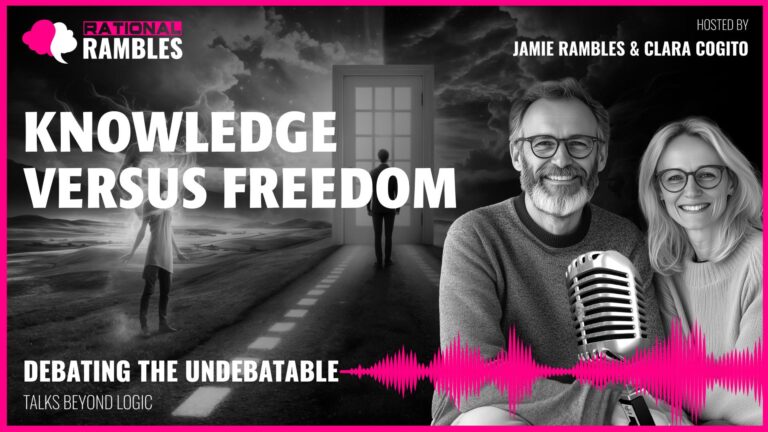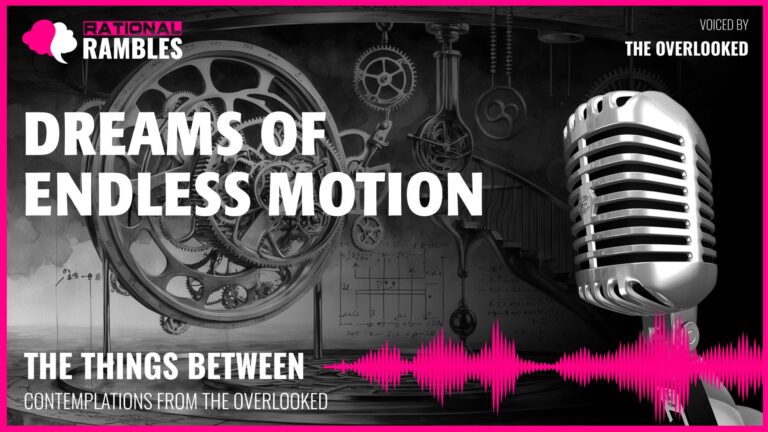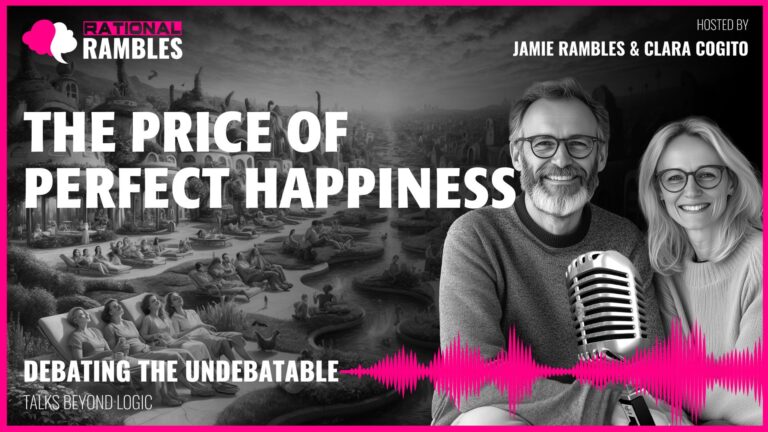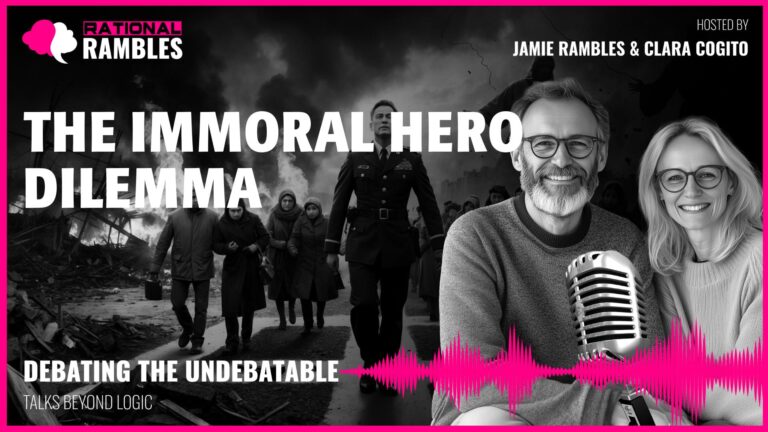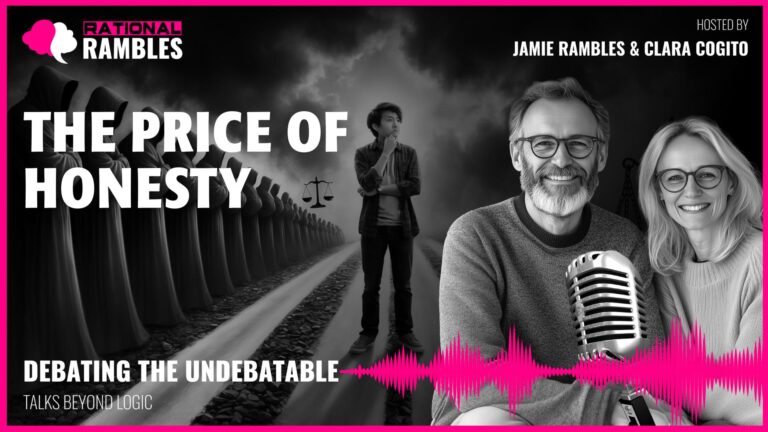Portals Through Time: Philosophical and Psychological Dimensions of Temporal Journeys
Introduction: The Allure of Time Travel
If you could travel back in time for just 24 hours, where would you go? This seemingly simple question unfolds into a profound exploration of human values, desires, and our relationship with history. The allure of time travel has captivated human imagination across cultures and centuries, from ancient myths of gods who could manipulate time to contemporary scientific speculations about wormholes and quantum mechanics. Yet beneath the scientific fascination lies a deeper philosophical and psychological inquiry: what does our desire to visit the past reveal about who we are and what we value?
This article explores the multifaceted implications of temporal journeys, examining how the thought of traveling through time illuminates our understanding of knowledge, identity, moral responsibility, and the human condition. By analyzing what draws us to particular moments in history, we gain insight into our deepest values and the meaning-making processes that define human consciousness. Whether we would choose to witness pivotal historical events, connect with personal ancestry, or recover lost knowledge, our temporal preferences function as a mirror reflecting our fundamental concerns and aspirations.
As we explore the hypothetical opportunity to step through a portal into another time, we confront essential questions about epistemology (how we know and understand), ethics (our moral responsibilities across time), psychological meaning (what fulfills and transforms us), and the nature of human experience itself. The time travel thought experiment thus serves as a unique philosophical tool for examining the human condition in all its temporal complexity.
The Dual Pull: Collective History versus Personal Narrative
One of the first philosophical tensions that emerges when contemplating time travel is the choice between witnessing moments of collective historical significance versus exploring events of personal importance. This division reveals a fundamental aspect of human identity—our simultaneous existence as individuals with unique personal narratives and as participants in broader historical and cultural movements.
The Monumental Historical Attraction
Many would be immediately drawn to monumental historical events: standing among the crowds during Martin Luther King Jr.’s “I Have a Dream” speech, witnessing the construction of the Great Pyramids at Giza, browsing the shelves of the Library of Alexandria before its destruction, or observing Einstein as he formulated his theory of relativity. This inclination reflects our desire to witness pivotal moments that shaped our collective human story—to see with our own eyes the events that created the world we now inhabit.
This attraction to historical watersheds reflects what philosopher Karl Jaspers called “axial moments”—transformative periods that fundamentally reorient human civilization. Our fascination with such moments suggests a desire to understand the contingency of history, to grasp how particular decisions, inventions, or ideas cascaded through time to create our present reality. There is also an element of verification at play—a desire to know “what really happened” beyond the filtered accounts that have reached us through historical records.
The philosopher Hannah Arendt emphasized the importance of witnessing and testimony in understanding historical truth. By observing pivotal historical moments firsthand, we might hope to transcend the limitations of written records, propaganda, and competing narratives to access a more authentic understanding of history as it unfolded. This impulse suggests a philosophical commitment to historical truth as something intrinsically valuable.
The Personal Historical Connection
Contrasting with this attraction to world-historical events is a more intimate pull toward personally significant moments: meeting grandparents in their youth, witnessing one’s parents fall in love, or observing ancestors as they made decisions that would eventually lead to one’s own existence. This inclination reflects what psychologists call “narrative identity”—our sense of self as constructed through the stories we tell about our origins and development.
Research on autobiographical memory and nostalgia reveals that humans place enormous emotional weight on origins and beginnings. We yearn to understand where we came from, both literally in terms of our genetic ancestry and metaphorically in terms of the cultural, social, and familial influences that shaped us. This connects to what psychologist Dan McAdams calls our “narrative identity”—the internalized, evolving story of self that provides life with unity, purpose, and meaning.
The philosopher Søren Kierkegaard captured this temporal aspect of self-understanding when he observed that “life can only be understood backwards, but it must be lived forwards.” The desire to travel back to personally significant moments reflects our quest to understand ourselves through understanding our origins—to witness the contingent events and choices that made our present reality possible.
The Existential Significance of Choosing
The necessity of choosing between these options—collective versus personal historical moments—creates what philosophers call an “existential situation.” When forced to prioritize one type of experience over another, we inevitably reveal and potentially clarify our deepest values. If given only 24 hours in the past, what would we choose, and what would that choice reveal about what we truly value?
This limited timeframe introduces what psychologists call a “scarcity mindset,” which intensifies the perceived value of the experience and forces a kind of existential prioritization. Under such constraints, research shows that people often shift from achievement-oriented thinking toward emotionally meaningful experiences. The philosophical implications are significant: when time is explicitly finite (as it always is, though we often ignore this fact), what emerges as most essential to human flourishing?
This tension between collective and personal historical significance reveals how our identities exist at the intersection of larger historical narratives and intimate personal stories. Our hypothetical time travel choices would reflect this complex interweaving of self and society, of individual biography and collective history. The very process of deliberating about where to go reveals the multilayered nature of human identity and values.
The Epistemological Dimension: Knowledge, Experience, and Understanding
The allure of time travel is inextricably linked to epistemological questions—concerns about the nature, possibilities, and limitations of human knowledge. The desire to witness the past firsthand reveals important insights about how we conceptualize knowledge and understanding, and what we believe can and cannot be transmitted through conventional means like texts, artifacts, and traditions.
The Limits of Textual Knowledge
Historical knowledge typically comes to us mediated through texts, artifacts, and oral traditions. These mediated forms of knowledge transfer inevitably involve selection, interpretation, and potential distortion. The desire to travel through time suggests a recognition of the limitations of these conventional epistemic channels—an acknowledgment that something essential is lost when experience is translated into text or image.
Philosopher Hans-Georg Gadamer described the challenge of historical understanding as a “fusion of horizons,” where the interpreter’s perspective must somehow merge with the historical context being interpreted. This fusion is always imperfect, as our modern conceptual frameworks, values, and assumptions inevitably color our understanding of the past. Time travel fantasies reflect a desire to transcend this hermeneutic gap—to understand the past on its own terms rather than through the lens of our present moment.
This desire connects to what philosopher Edmund Husserl called the “natural attitude”—our basic orientation toward experiencing the world directly rather than through conceptual mediation. We intuitively sense that something important is lost when historical understanding is reduced to propositional knowledge (knowing that) without the accompanying phenomenological dimension (knowing how it felt).
Qualia and Experiential Knowledge
Philosopher Frank Jackson’s famous “knowledge argument” (sometimes called “Mary’s Room”) illuminates a key aspect of our time travel desires. In this thought experiment, Mary is a brilliant scientist who knows everything there is to know about color perception—the physics of light, the neurophysiology of vision, the psychology of color experience—but has lived her entire life in a black and white room. When Mary finally sees color for the first time, she gains new knowledge—the experiential knowledge of what it’s like to see red, which could not be derived from her comprehensive theoretical understanding.
Similarly, time travel appeals because it promises access to experiential knowledge that cannot be fully captured in historical accounts. We might know the historical facts about ancient Rome, but what was it like to walk its streets, to smell the markets, to hear Latin as a living language, to feel the social dynamics that animated daily life? These experiential dimensions—what philosophers call “qualia” or the subjective, qualitative aspects of experience—seem accessible only through direct encounter.
Psychological research supports this intuition. Studies on episodic versus semantic memory reveal that multisensory, emotionally rich experiences create much more powerful and detailed memories than the mere acquisition of facts. The “experiencing self” engages with reality differently than the “remembering self” or the “knowing self.” Time travel would engage all these dimensions of cognition, potentially leading to a more complete form of understanding.
Verification and Historical Controversies
Another epistemological motivation for time travel would be to resolve historical controversies and uncertainties. Did Shakespeare really write his plays? What actually happened during the assassination of Julius Caesar? What were the historical Jesus or Muhammad really like, beyond the accounts written decades or centuries after their deaths? The desire to settle such questions reflects what psychologists call our need for “epistemic closure”—resolution of uncertainty, especially around matters of deep significance.
This verification impulse reveals a commitment to historical truth as intrinsically valuable. However, as historians and philosophers of science have long recognized, observation is never theory-neutral. Even as direct witnesses to historical events, our perceptions would be shaped by our existing conceptual frameworks, expectations, and biases. As philosopher Thomas Kuhn demonstrated in scientific contexts, what we see is influenced by what we believe and expect to see.
This raises a profound philosophical question: would direct observation of the past necessarily settle our historical debates? Or would we, like the eyewitnesses whose testimonies often conflict in legal settings, construct different narratives even from firsthand experience? The psychological research on memory construction and eyewitness testimony suggests that even as direct observers, our understanding would remain partial and perspectival.
The Problem of Translation Across Conceptual Schemes
Perhaps the most profound epistemological challenge of time travel would be the problem of conceptual translation across vastly different historical contexts. Language doesn’t merely label a pre-existing reality; it actively shapes how we perceive and conceptualize the world. The Sapir-Whorf hypothesis in linguistics suggests that language influences cognition in fundamental ways, affecting how we categorize experience and what aspects of reality we attend to.
Ancient Greeks, medieval Europeans, or indigenous Americans before colonization didn’t just speak differently; they conceptualized time, selfhood, causality, and moral responsibility in fundamentally different ways. Even if we could physically transport ourselves to ancient Athens to hear Socrates speak, would we truly understand what we were witnessing? Or would we inevitably interpret their behavior and language through our modern conceptual frameworks, missing essential dimensions of meaning?
Philosopher Donald Davidson explored this problem through his concept of “radical interpretation,” questioning whether we can ever fully translate between fundamentally different conceptual schemes. Similarly, philosopher Alasdair MacIntyre has argued that moral concepts from different historical periods may be fundamentally incommensurable—not merely different but operating according to entirely different logical structures that resist simple translation.
This suggests that genuine understanding across historical distance would require more than mere observation—it would require a kind of conceptual flexibility and historical empathy that might be extraordinarily difficult to achieve. Time travel would confront us with the limits of our ability to step outside our own historical and cultural situatedness, challenging the fantasy of perfect historical understanding.
The Moral Dimension: Witness, Responsibility, and Ethical Time Travel
Beyond curiosity and the quest for knowledge, time travel raises profound moral questions. What ethical considerations should guide our hypothetical choices about where to travel in time? What responsibilities might come with temporal witnessing? These questions illuminate important aspects of moral psychology and ethical theory related to testimony, historical memory, and intergenerational responsibility.
The Ethics of Bearing Witness
One of the most morally significant possibilities of time travel would be bearing witness to historical atrocities and injustices: slavery in the American South, the Holocaust, colonial genocides, or other instances of mass suffering. Philosopher Avishai Margalit has developed the concept of the “moral witness”—someone who experiences suffering firsthand and can testify to it, bearing an ethical responsibility to ensure that what happened is not forgotten or denied.
This witnessing function serves several moral purposes. First, it honors victims by acknowledging their suffering and preserving their memory. Second, it creates a form of moral accountability, ensuring that perpetrators cannot entirely escape the judgment of history. Third, it potentially helps prevent future atrocities by keeping historical awareness alive. As philosopher George Santayana famously observed, “Those who cannot remember the past are condemned to repeat it.”
From a psychological perspective, bearing witness to historical trauma creates what researchers call “vicarious traumatization”—emotional and psychological costs absorbed by witnesses to suffering. Yet this vicarious trauma might also lead to what psychologists call “post-traumatic growth”—positive psychological change experienced as a result of struggling with challenging circumstances. Confronting historical horrors might deepen our capacity for empathy, strengthen our commitment to justice, and clarify our moral priorities.
The ethical implications are significant: might there be a moral obligation to use our hypothetical time travel opportunity to bear witness rather than pursuing more pleasant historical experiences? This question highlights the tension between personal fulfillment and moral responsibility—a central theme in ethical theory from Kant to contemporary virtue ethics.
Responsibility to the Future
Time travel also raises questions about our responsibilities to future generations. If we gained insights from the past that could help address contemporary challenges, would we have an obligation to apply those insights? This connects to what developmental psychologists call “generativity”—the concern for establishing and guiding future generations.
Philosopher Hans Jonas has argued for a “principle of responsibility” that extends our ethical concern temporally to include future generations. From this perspective, the most ethical use of time travel might be to seek wisdom that could help address pressing contemporary challenges like climate change, social inequality, or technological disruption.
This reframes time travel from a self-oriented pursuit of knowledge or experience to an other-oriented quest for wisdom that could benefit humanity’s future. It connects to what philosopher Hannah Arendt described as thinking as responsibility—the idea that clearer understanding creates obligations to act on that understanding. If we witnessed how past civilizations navigated climate changes or social upheavals, we would acquire a form of practical wisdom that creates moral responsibilities in the present.
Recovery of Lost Knowledge as Ethical Restoration
Another moral dimension of time travel involves the potential recovery of knowledge systems that have been marginalized or destroyed through colonization, conquest, or cultural oppression. Philosopher Miranda Fricker has developed the concept of “epistemic injustice” to describe situations where certain forms of knowledge are systematically devalued or erased due to prejudice against the knowers.
Indigenous ecological knowledge, traditional medical practices, sustainable agricultural techniques, and alternative social arrangements have often been lost or degraded through historical processes of cultural domination. Time travel could potentially function as a form of epistemic restoration, recovering valuable knowledge that might help address contemporary challenges around sustainability, wellbeing, and social cohesion.
This recovery project has both epistemological and ethical dimensions. Epistemologically, it expands our collective knowledge base by incorporating diverse ways of understanding reality. Ethically, it works toward historical justice by acknowledging and restoring the dignified of marginalized knowledge traditions. As philosopher Edward Said noted in his work on Orientalism, the control of knowledge has always been intertwined with the exercise of power.
The Paradox of Non-Intervention
Perhaps the most famous ethical dilemma in time travel narratives is the question of intervention. The classic “grandfather paradox” highlights the logical problems that might arise if a time traveler changed the past in ways that affected their own existence. Beyond these logical puzzles lies a deeper ethical question: would we have a responsibility not to interfere with the historical timeline, even when witnessing injustice or suffering?
This non-intervention principle parallels ethical debates in anthropology and international relations about cultural relativism and intervention across cultural boundaries. Philosopher John Stuart Mill’s “harm principle” might suggest that intervention is justified to prevent harm to others, but this raises complex questions about historical contextualization and moral judgment across different cultural and temporal frameworks.
The tension between the impulse to prevent suffering and the recognition of our limited understanding of historical contexts creates a profound ethical dilemma. It highlights the moral complexity of historical judgment and the difficulty of applying contemporary ethical standards to different historical periods—a challenge that philosophers like Alasdair MacIntyre have explored through the concept of tradition-constituted rationality.
These ethical dimensions of time travel illuminate broader questions about historical memory, moral responsibility across time, and the ethical implications of knowledge. By considering how we would navigate these dilemmas in a hypothetical time travel scenario, we gain insight into our moral intuitions and values in the present.
The Psychological Dimension: Identity, Meaning, and Temporal Consciousness
The time travel thought experiment reveals fundamental aspects of human psychology, particularly our relationship with time and how temporal consciousness shapes our sense of identity, meaning, and wellbeing. By examining the psychological motivations and implications of time travel desires, we gain insight into how humans construct meaningful lives within temporal constraints.
Narrative Identity and Temporal Integration
Psychologist Dan McAdams has developed the concept of “narrative identity” to describe how humans construct an evolving story about themselves that integrates their past, present, and anticipated future into a coherent whole. Our sense of who we are depends on this temporal integration—our ability to connect our past experiences to our current situation and future aspirations.
The desire to visit significant moments in personal or collective history reflects our psychological need for narrative coherence. We seek to understand how the present emerged from the past and how we fit into larger historical narratives. Time travel fantasies express what psychologists call “autobiographical reasoning”—the cognitive process of connecting life events into a meaningful pattern that explains who we are and why we matter.
Research on autobiographical memory shows that we don’t merely remember our past; we actively construct it through selective attention, interpretation, and narrative shaping. Our memories are not videotape recordings but narrative constructions that emphasize meaning over factual completeness. Time travel desires reflect our intuitive understanding that the past continues to exist through its incorporation into our present identity.
Nostalgia and Psychological Wellbeing
Psychologist Constantine Sedikides and colleagues have conducted extensive research on nostalgia, finding that this emotional longing for the past serves important psychological functions. Contrary to earlier views of nostalgia as merely regressive or escapist, contemporary research reveals that nostalgic reflection can enhance meaning in life, strengthen social connectedness, and boost psychological resilience.
Time travel fantasies can be understood as an extension of nostalgia—a desire to reconnect with culturally significant pasts that ground our collective identity. Just as personal nostalgia helps individuals maintain identity continuity during times of change, cultural nostalgia (often expressed through time travel fiction) helps societies maintain a sense of continuity and meaning amid rapid social transformation.
This psychological function becomes particularly important during periods of accelerated social change. As sociologist Hartmut Rosa has observed, modern societies experience “social acceleration”—a quickening pace of life that can lead to alienation and fragmentation. Time travel fantasies may represent a psychological response to this acceleration, expressing a desire to momentarily step outside the rushing stream of modernity to reconnect with slower, more comprehensible historical moments.
Temporal Perspective and Wisdom
Psychologist Philip Zimbardo has developed the concept of “time perspective”—the often unconscious process by which personal and social experiences are assigned to temporal categories that help give order and coherence to events. His research shows that a balanced time perspective—the ability to draw appropriately from past memories, present experiences, and future anticipations—correlates with greater psychological wellbeing.
The time travel thought experiment cultivates what we might call “temporal perspective-taking”—the ability to imaginatively project ourselves into different historical contexts. This capacity relates to what philosophers and psychologists describe as wisdom—the ability to take a broader perspective on human affairs, recognizing patterns across time and contexts.
Research on wisdom suggests that wise individuals can transcend their immediate circumstances to consider longer temporal arcs and broader contextual factors. The mental exercise of imagining time travel potentially cultivates this wisdom by encouraging us to view our present moment as simultaneously unique and connected to larger historical patterns. This expanded temporal consciousness can lead to more thoughtful decision-making and a deeper sense of meaning.
Counterfactual Thinking and Psychological Growth
Another psychological dimension of time travel fantasies involves counterfactual thinking—the human tendency to imagine “what might have been” if past events had unfolded differently. Psychologist Neal Roese has shown that counterfactual thinking serves important functions, helping us learn from experience and prepare for future situations.
Time travel fantasies represent a specialized form of counterfactual thinking, allowing us to imagine how history might have unfolded differently and how alternative choices might have led to different outcomes. This connects to what psychologist Carol Dweck calls a “growth mindset”—the belief that abilities and outcomes are not fixed but can be developed through dedication and hard work.
By imaginatively exploring historical contingency—how events might have unfolded differently—we develop a more sophisticated understanding of causality and human agency. This understanding can empower us in the present by highlighting how our choices matter within the flow of time, even as we recognize the constraints that historical circumstances place on individual and collective action.
These psychological dimensions of time travel illuminate how human consciousness is fundamentally temporal in nature. Our sense of identity, meaning, and agency all depend on our ability to integrate past, present, and future into a coherent framework. The time travel thought experiment makes this temporal aspect of human psychology explicit, inviting us to examine how we construct meaningful lives within time’s flow.
Wisdom Through Temporal Distance: The Practical Value of Time Travel Thinking
Beyond satisfying curiosity or providing novel experiences, the most valuable aspect of hypothetical time travel might be the practical wisdom it could yield for addressing contemporary challenges. By expanding our temporal perspective beyond the immediate present, time travel thinking helps us recognize patterns across history and apply insights from the past to current predicaments.
Historical Inflection Points and Contemporary Transitions
Some of the most instructive moments for time travelers might be historical inflection points—periods of rapid transition when societies navigated paradigm shifts similar to those we face today. The transition from agricultural to industrial society, for instance, involved disruptive changes in work patterns, social relationships, and cultural values that parallel our current digital transformation.
Philosopher Walter Benjamin developed the concept of “now-time” (Jetztzeit)—moments when the past suddenly becomes legible and relevant to the present in new ways. From this perspective, the most valuable time travel would be to historical moments that illuminate current challenges, containing seeds of insight for contemporary problems.
The study of how past societies navigated climate changes, technological disruptions, epidemics, or social upheavals could provide valuable models for resilience and adaptation. Historical sociologist Karen Barkey has studied how certain empires maintained stability over centuries despite ethnic and religious diversity—potentially offering insights for managing diverse societies today. Similarly, environmental historians have documented how past civilizations responded to climate fluctuations, providing potential lessons for our current climate crisis.
Recovering Sustainable Practices and Alternative Social Arrangements
Time travel thinking also enables us to recover knowledge of sustainable practices and alternative social arrangements that might address contemporary challenges. Indigenous cultures often developed sophisticated systems for managing natural resources sustainably over generations—knowledge that was frequently displaced or devalued through colonization.
Environmental philosopher J. Baird Callicott has argued for recovering what he calls “traditional ecological knowledge” to complement scientific approaches to sustainability. Similarly, economic anthropologists like Karl Polanyi have documented alternative economic arrangements throughout history that embedded economic activity within social relationships and ecological constraints—potentially offering models for a more sustainable economy today.
By imaginatively visiting pre-industrial or indigenous societies, we might recover valuable knowledge about sustainable agriculture, natural building techniques, or community-based solutions to social needs. This doesn’t imply romanticizing the past or ignoring the genuine advances of modernity, but rather expanding our repertoire of potential solutions by learning from diverse historical experiences.
Understanding Civilizational Collapse and Resilience
Perhaps the most sobering but potentially valuable insight from time travel thinking would come from studying historical instances of civilizational collapse and resilience. Archaeologist Joseph Tainter has analyzed how complex societies throughout history have collapsed when facing diminishing returns on investments in complexity. Historian Eric Cline has documented how interconnected Bronze Age civilizations experienced cascading system failures around 1177 BCE.
By understanding these historical patterns, we might better recognize warning signs in our own civilization and take preventive measures. Equally important is studying instances of resilience—how societies successfully navigated existential threats. The Byzantine Empire’s remarkable thousand-year survival amid constant challenges offers lessons in adaptability, while the rapid rebuilding of European societies after the Black Death demonstrates human capacity for renewal after catastrophe.
This form of time travel thinking connects to what philosopher Nassim Nicholas Taleb calls “antifragility”—the ability of systems to not merely withstand shocks but actually strengthen through adversity. Historical examples of antifragile social systems might provide models for building greater resilience into our contemporary institutions.
Cultivating Practical Wisdom Through Temporal Perspective
Aristotle distinguished between theoretical wisdom (sophia) and practical wisdom (phronesis)—the ability to make good decisions in concrete situations based on experience and judgment. Time travel thinking cultivates this practical wisdom by expanding our experiential base beyond our limited personal experience to include the collective experience of humanity across time.
As philosopher Martha Nussbaum has argued, imagination plays a crucial role in ethical development by allowing us to envision alternative possibilities and understand experiences beyond our own. Time travel thinking represents a particular form of moral imagination that transcends not just social but temporal boundaries, potentially cultivating a more expansive ethical awareness.
Recent research in moral psychology supports this view. Studies by Paul Bloom and others suggest that historical perspective-taking can enhance moral reasoning by helping people see beyond immediate emotional reactions to consider broader patterns and principles. The ability to contextualize current challenges within longer historical arcs potentially leads to more thoughtful and nuanced responses.
By encouraging us to view contemporary challenges against the backdrop of historical patterns, time travel thinking helps us avoid both the presentism that treats current issues as unprecedented and the fatalism that sees current problems as insurmountable. It reminds us that humans have navigated massive changes before and that our present moment, while unique in its particulars, participates in recurring patterns of human experience.
Conclusion: The Temporal Mirror
The time travel thought experiment ultimately functions as a temporal mirror, reflecting our deepest values, concerns, and aspirations back to us through our choices about where and when we would visit. Whether we would choose to witness monumental historical events, connect with personal ancestry, bear witness to historical injustices, or learn from past civilizations, these hypothetical choices reveal what matters most to us in the present.
Beyond this revelatory function, time travel thinking cultivates valuable cognitive and ethical capacities. It expands our temporal consciousness beyond the immediate present, helping us understand our lives as part of longer historical arcs. It develops our capacity for perspective-taking across temporal distances, potentially enhancing empathy and moral reasoning. And it reminds us of both the contingency of history—how things might have been otherwise—and the patterns that recur across different historical contexts.
The philosophical value of this thought experiment lies not in the scientific possibility of physical time travel but in the expanded temporal perspective it encourages. As philosopher Bernard Williams noted, a “historical sense”—an awareness of how our present moment is situated within broader temporal flows—is essential for human flourishing. Time travel thinking cultivates this historical sense, reminding us that we are simultaneously unique historical actors and participants in recurring patterns of human experience.
Perhaps most importantly, time travel thinking helps us recognize our responsibility as links in a temporal chain connecting past to future. It highlights how we are beneficiaries of past wisdom and sacrifices while also bearing responsibility for decisions that will shape future possibilities. This expanded temporal consciousness potentially motivates greater care for both historical preservation and future wellbeing.
As we imagine stepping through portals to other times, we discover that the most valuable journey may be the one that occurs within our own consciousness—the expanded temporal awareness that helps us live more thoughtfully in our present moment, informed by the past and mindful of the future. In this sense, the philosophical practice of time travel thinking constitutes a form of temporal wisdom that enriches our experience of being human within time’s flow.
References
Arendt, H. (1958). The Human Condition. University of Chicago Press.
Barkey, K. (2008). Empire of Difference: The Ottomans in Comparative Perspective. Cambridge University Press.
Benjamin, W. (1968). Theses on the Philosophy of History. In Illuminations (H. Zohn, Trans.). Schocken Books.
Bloom, P. (2016). Against Empathy: The Case for Rational Compassion. Ecco.
Callicott, J. B. (1994). Earth’s Insights: A Multicultural Survey of Ecological Ethics from the Mediterranean Basin to the Australian Outback. University of California Press.
Cline, E. H. (2014). 1177 B.C.: The Year Civilization Collapsed. Princeton University Press.
Davidson, D. (1984). Inquiries into Truth and Interpretation. Oxford University Press.
Dweck, C. (2006). Mindset: The New Psychology of Success. Random House.
Fricker, M. (2007). Epistemic Injustice: Power and the Ethics of Knowing. Oxford University Press.
Gadamer, H.-G. (1975). Truth and Method (J. Weinsheimer & D. G. Marshall, Trans.). Continuum.
Jackson, F. (1982). Epiphenomenal Qualia. Philosophical Quarterly, 32(127), 127-136.
Jonas, H. (1984). The Imperative of Responsibility: In Search of an Ethics for the Technological Age. University of Chicago Press.
Kierkegaard, S. (1843/1987). Either/Or (H. V. Hong & E. H. Hong, Trans.). Princeton University Press.
Kuhn, T. S. (1962). The Structure of Scientific Revolutions. University of Chicago Press.
MacIntyre, A. (1981). After Virtue: A Study in Moral Theory. University of Notre Dame Press.
Margalit, A. (2002). The Ethics of Memory. Harvard University Press.
McAdams, D. P. (2001). The Psychology of Life Stories. Review of General Psychology, 5(2), 100-122.
Nussbaum, M. C. (1997). Cultivating Humanity: A Classical Defense of Reform in Liberal Education. Harvard University Press.
Polanyi, K. (1944/2001). The Great Transformation: The Political and Economic Origins of Our Time. Beacon Press.
Roese, N. J. (1997). Counterfactual Thinking. Psychological Bulletin, 121(1), 133-148.
Rosa, H. (2013). Social Acceleration: A New Theory of Modernity (J. Trejo-Mathys, Trans.). Columbia University Press.
Said, E. W. (1978). Orientalism. Pantheon Books.
Sedikides, C., Wildschut, T., Arndt, J., & Routledge, C. (2008). Nostalgia: Past, Present, and Future. Current Directions in Psychological Science, 17(5), 304-307.
Tainter, J. A. (1988). The Collapse of Complex Societies. Cambridge University Press.
Taleb, N. N. (2012). Antifragile: Things That Gain from Disorder. Random House.
Williams, B. (2002). Truth and Truthfulness: An Essay in Genealogy. Princeton University Press.
Zimbardo, P. G., & Boyd, J. N. (1999). Putting Time in Perspective: A Valid, Reliable Individual-Differences Metric. Journal of Personality and Social Psychology, 77(6), 1271-1288.


